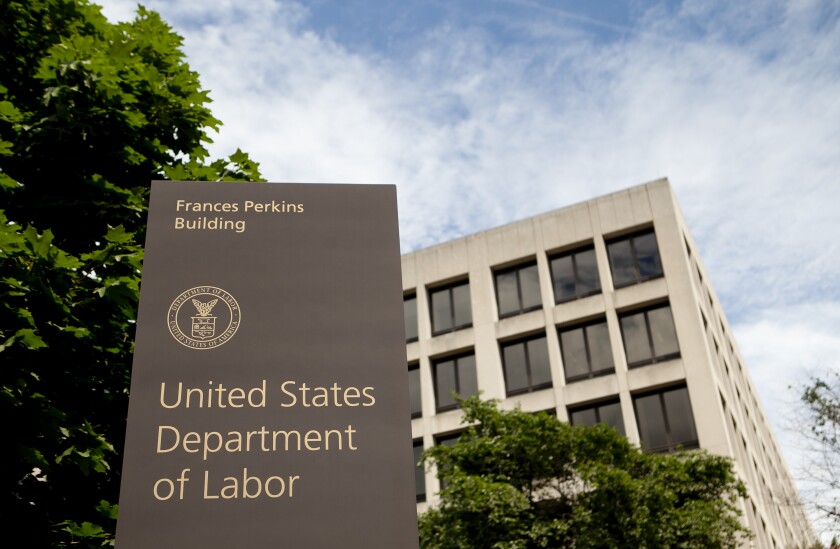Employment increased by 245,000 jobs in November, the U.S. Bureau of Labor Statistics reported Friday, marking the slowest month of job growth since the spring and far less than the 610,000 jobs added in October and the 711,000 added in September. Job losses occurred in accounting and bookkeeping and other sectors amid the ravages of the COVID-19 pandemic.
Nevertheless the unemployment rate dipped two-tenths of a percentage point to 6.7 percent. While the 245,000 jobs would have been a good sign of growth last year, they represent a continued slowing of the pace of job growth after millions of job losses at the start of the year. The main job gains in November happened in the transportation and warehousing, professional and business services, and health care sectors. Employment declined in government and retail trade. While professional and business services gained, the accounting and bookkeeping area lost 2,400 jobs. Employment in professional and business services increased by 60,000, with about half the gain occurring in temporary help services, where 32,000 jobs were added. Professional and business services employment has declined 1.1 million since February.
“With the rise in cases and lack of stimulus, we expected that the hiring would begin to slow,” said Phil Noftsinger, executive vice president of CBIZ, a Top 100 Firm. “That’s unfortunate because we probably had an opportunity to arrest that a bit if we had acted sooner in terms of stimulus. Generally in the professional services category you saw the unemployment rate tick down. It’s just under 6 percent now. That sector is usually pretty strong and is usually in better shape than the overall group.”
Jack Hopkins is president and CEO of CorTrust Bank in Sioux Falls, S.D., and chairman of the Independent Community Bankers of America.
The number of long-term unemployed (those who have been jobless for 27 weeks or more) increased in November by 385,000 to 3.9 million, accounting for 36.9 percent of the total number of unemployed, while the number of people who have been jobless 15 to 26 weeks declined by 760,000 to 1.9 million. The labor force participation rate edged down to 61.5 percent in November, or 1.9 percentage points below its February level. Average hourly earnings increased 9 cents to $29.58.
Noftsinger finds the renewal of stimulus talks in Washington an encouraging sign of progress. “It’s not ideal, but I think we’re starting to see the labor numbers begin to peak in terms of getting back to where we were in February in the context of a vaccine, the distribution of said vaccine, the reopening of the economy, and certainly any stimulus that we could find ourselves getting between now and those things happening,” he said.
CBIZ released its own monthly CBIZ Small Business Employment Index on Friday, reporting a 1.06 percent seasonally adjusted decrease for November, despite the job growth that usually occurs during the holiday shopping season. From a geographic standpoint, the West was the only U.S. region to see a hiring increase at 1.36 percent, while the Northeast saw a decrease of 1.79 percent, the Central region declined 1.43 percent and Southeast slipped 0.67 percent. Hiring declined in states that opened on or before May 15 by 1.73 percent and states that opened afterward by 0.97 percent.
Several industries experienced hiring declines, including technology, life sciences, construction, accommodation and food services, and real estate. On the plus side, hiring increased in arts and entertainment, which had experienced depressed trends since the spring. Noftsinger wasn’t sure how to explain the job growth in that sector. Hiring grew among nonprofits as well.
“There were some surprises in our metric,” said Noftsinger. “I would point to accomodation and food services, which had a strong bounce as restaurants and bars opened. That decline is indicative of some of the closures taking place in larger metropolitan areas. We’re starting to see that play out in those numbers. I would expect that to accelerate as we go into December and the cases continue to rise and the closures continue to happen.”


